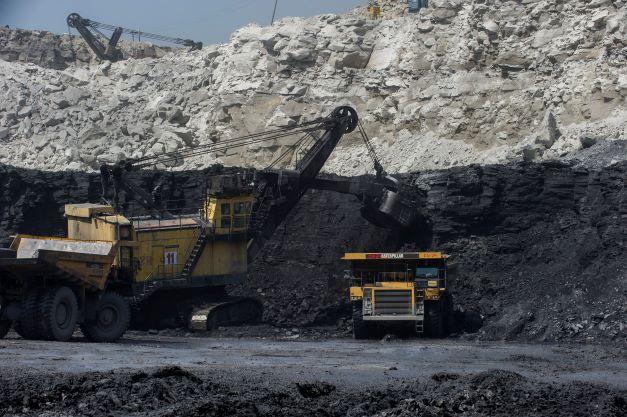India’s coal sector has crossed a historic threshold, exceeding 900 million tonnes (MT) of coal production on March 6, 2024. This remarkable achievement marks a significant step towards the ambitious 1 billion tonne (BT) target set for the current fiscal year, and positions India to potentially achieve this goal well ahead of schedule.
 Notably, this feat surpasses last year’s record by a considerable margin, accomplished a full 27 days ahead of schedule. This not only demonstrates the industry’s commitment and efficiency but also carries strategic significance. By exceeding domestic coal demand early in the year, India can build stockpiles and mitigate potential disruptions in the global coal market, further bolstering its energy security.
Notably, this feat surpasses last year’s record by a considerable margin, accomplished a full 27 days ahead of schedule. This not only demonstrates the industry’s commitment and efficiency but also carries strategic significance. By exceeding domestic coal demand early in the year, India can build stockpiles and mitigate potential disruptions in the global coal market, further bolstering its energy security.
The achievement is further strengthened by ample coal stockpiles, currently at around 85 MT with coal companies and 43.28 MT with domestic coal-based thermal power plants as of March 5, 2024. These reserves ensure uninterrupted power supply across the country, particularly during peak demand periods. This stable coal supply contributes to stability in the energy sector, enabling businesses and industries to operate efficiently, and supports economic growth by fostering a predictable and reliable energy environment.
Reduced Dependence, Economic Benefits: Surpassing the 900 MT milestone not only strengthens India’s energy security but also reduces its dependence on coal imports. This translates to substantial foreign exchange savings, offering significant economic benefits. By relying less on imported coal, India can allocate resources towards other crucial areas like infrastructure development, renewable energy initiatives, and social welfare programs.
This achievement aligns perfectly with the “Atmanirbhar Bharat” vision, championed by the Prime Minister, which emphasizes self-reliance in the energy domain. The Ministry of Coal’s relentless efforts and strategic initiatives, including mine expansions, technological advancements, and improved logistics, are instrumental in propelling India towards sustainable development and achieving energy independence. This not only ensures long-term energy security but also empowers India to play a leading role in global efforts towards a cleaner and more sustainable future.
Furthermore, India’s success in its domestic coal production holds the potential to influence global coal prices, particularly if import dependence continues to decrease. This could have a ripple effect on other countries, potentially prompting them to explore alternative energy sources and accelerate the transition towards a more sustainable energy mix.




